We spoke the other day with English conductor Thomas Kemp, Artistic Director and Founder of Music@Malling. West Malling, a market town in Kent, England, with a history that extends back to the 11th century with the founding of St. Mary’s Abbey around 1090. The town is only 56 km (35 miles) from central London and it’s about one hour from London by rail. The town appears in the paintings of J.M.W. Turner and in the Beatles’ movie Magical Mystery Tour.
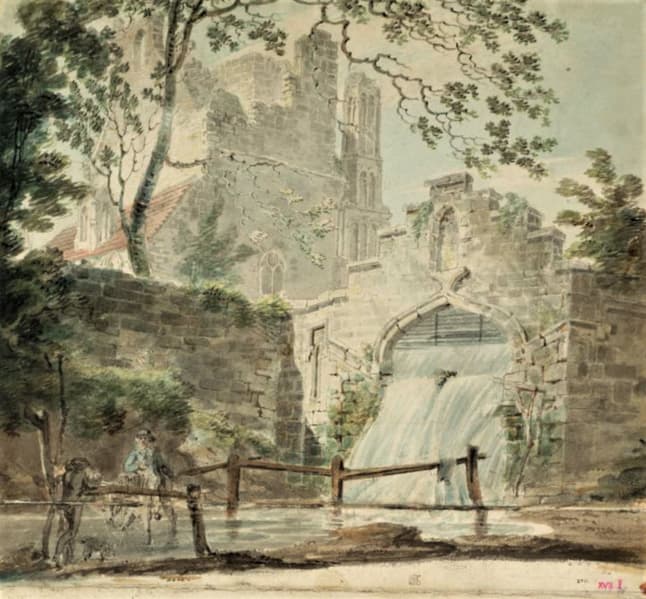
J. M. W. Turner: St Mary’s Abbey with the Cascade, a Study of Posts and a Signpost: West Malling, circa 1791 (Tate Britain)
When Thomas Kemp came back to his hometown to speak to a primary school class about his career in music, he quickly found out that music programmes in West Malling were a thing of the past. With that discovery, he decided to bring music back the best way he could. In 2011, he founded Music@Malling, and the 2024 iteration is an amazing amalgam of concerts and talks, with familiar works and premiers. 18 concerts are condensed into just 9 days and there’s something for everyone’s taste and something for tastes you’re still developing.
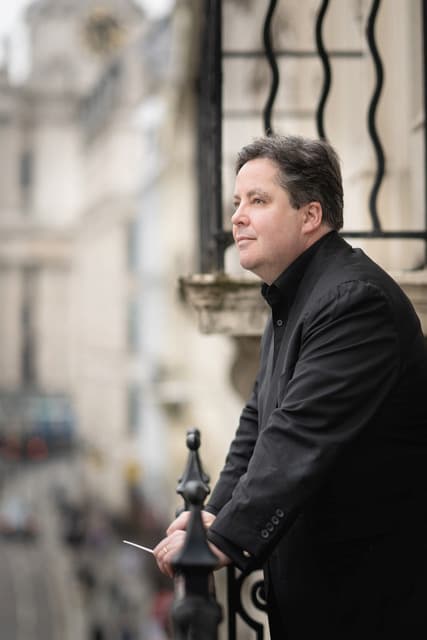
Thomas Kemp
This 14th festival brings music to the whole town, using the historic venues in and around West Malling. The concert opens at Malling Abbey with an exploration of the 17th century music (Byrd, Purcell, Tomkins, and Blow) intermixed with music by modern composer Deborah Pritchard, including a world premiere of Heart of Light, with Greta Mutly as violin soloist. Pritchard shares the stage with John Woolrich’s setting of poems by local 18th century poet Christopher Smart.
John Blow: Salvator mundi (St. Salvator’s Chapel Choir; Fitzwilliam String Quartet; Tom Wilkinson, cond.)
That same evening, tenor Mark Padmore takes us through some familiar works by Schubert (Die Forelle), Brahms, and then Schoenberg, linking him to his European musical past. Schoenberg’s work, Ode to Napoleon, Op. 41, was written in 1942 as a protest against tyranny. Artistic Director Thomas Kemp talks about Schoenberg and explores his music through the prism of 19th century Romanticism.
Arnold Schoenberg: Ode to Napoleon, Op. 41 (David Wilson-Johnson, reciter; Jeremy Denk, piano; Fred Sherry String Quartet; Robert Craft, cond.)
Skipping a head a day, the local manor house of Ightham Mote will be the site of an art and music discussion. In the chapel of the house, Brazilian sculptor Ana Maria Pacheco, who lives locally, has created seven relief carvings entitled Be Aware (2017–2022). Each piece depicts, as she says, seven styles of ‘blind-heartedness’, which we might cast in a more familiar form as the Seven Deadly Sins. However, Pacheco’s work is not judgemental about the sins, but simply warning one to ‘Be Aware’. Pacheco’s art will be displayed at the house through the month of October.
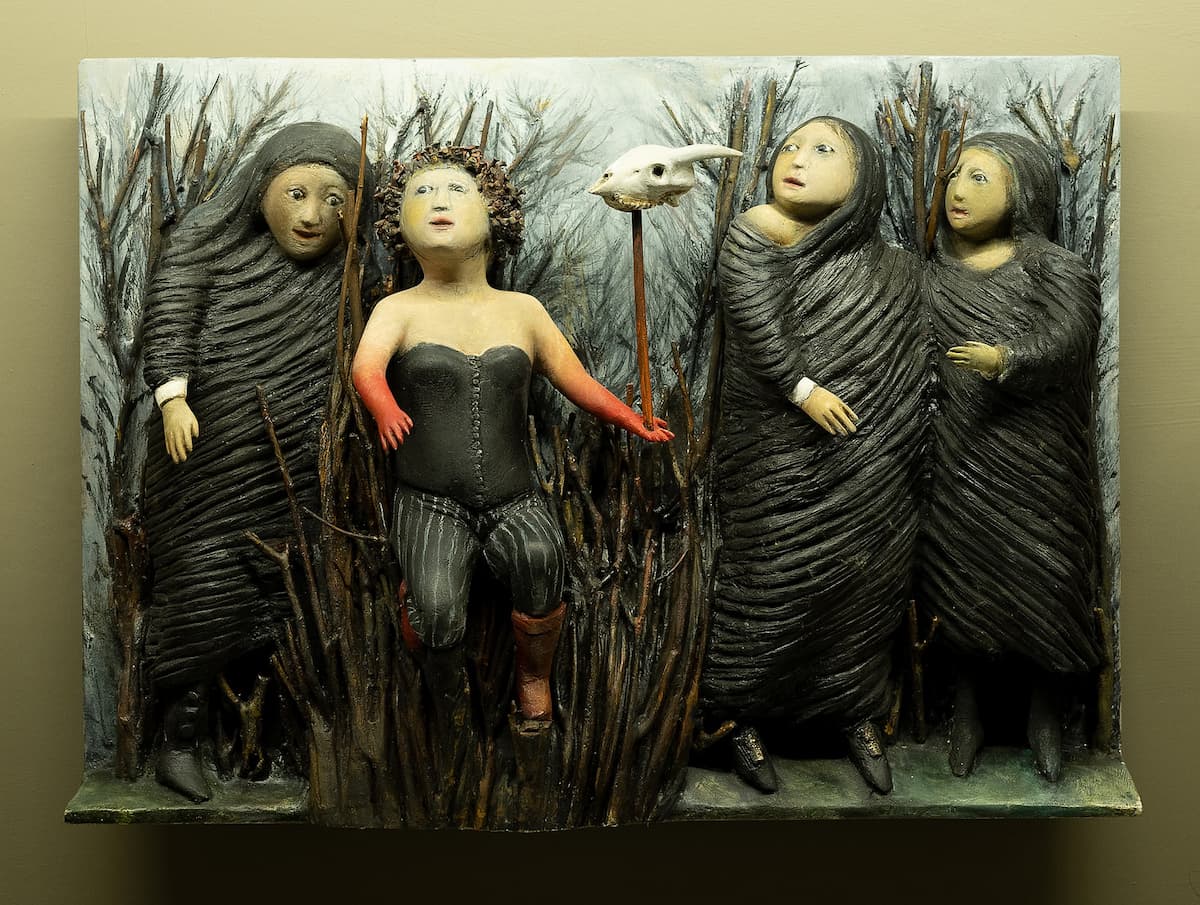
Pacheco: Be Aware 2, 2017–2022 (AP 270)
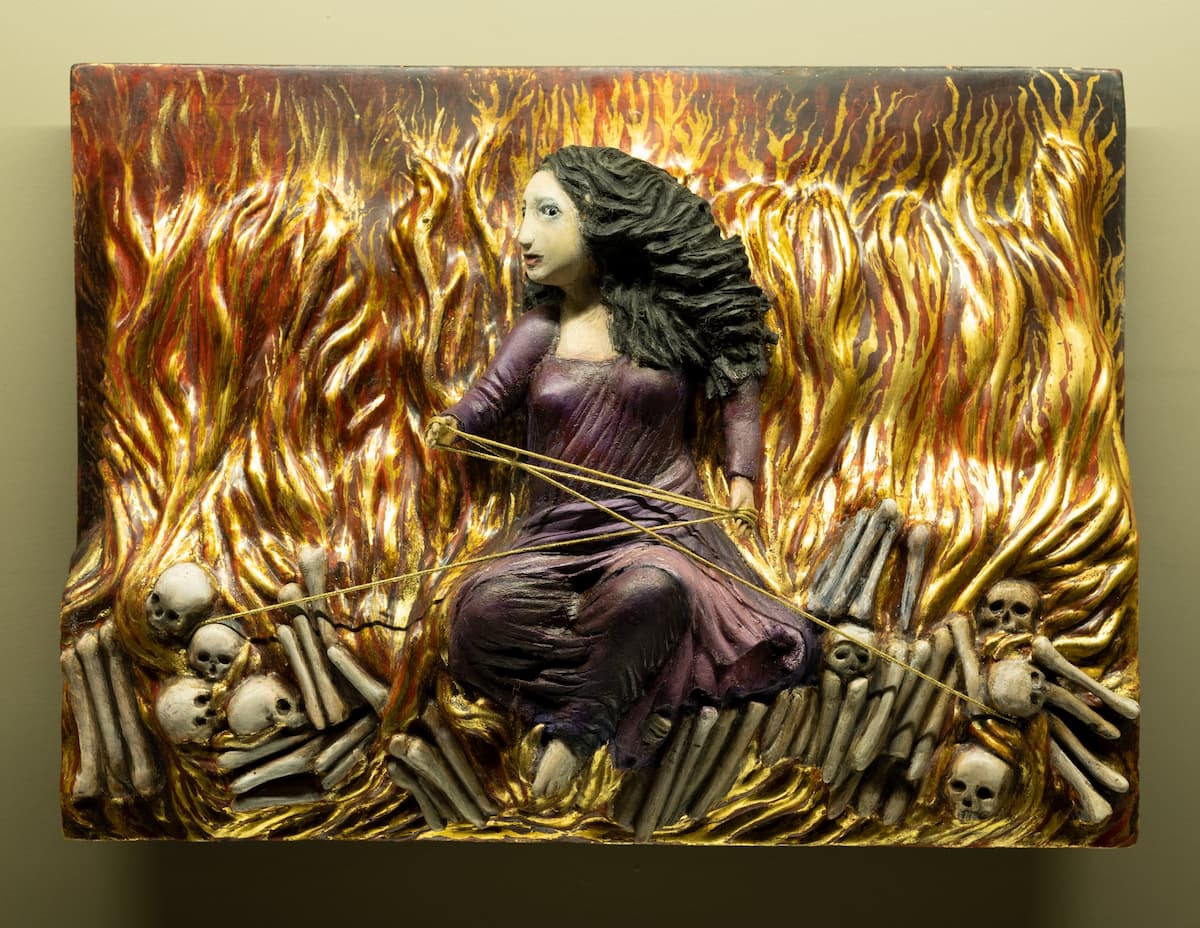
Pacheco: Be Aware 7, 2017–2022 (AP 301)
To accompany this will be a new soundscape by John Woolrich which will be presented live on 22 September and thereafter as a recording to accompany your viewing of the art.
Concert 11 is another genre-stretching concert. The viol consort Fretwork, led by Thomas Kemp, performs music by John Lawes and Orlando Gibbons before jumping through time to Hugo Wolf and three fantasias by contemporary composer John Woolrich.
William Lawes: Consort Set a 5 in F Major – I. Fantazy (Fretwork)
Concert 14 on Friday, 27 September, brings the Smith Quartet and their long-time collaborator English composer Gavin Bryars for the world premiere of his String Quartet No. 5.
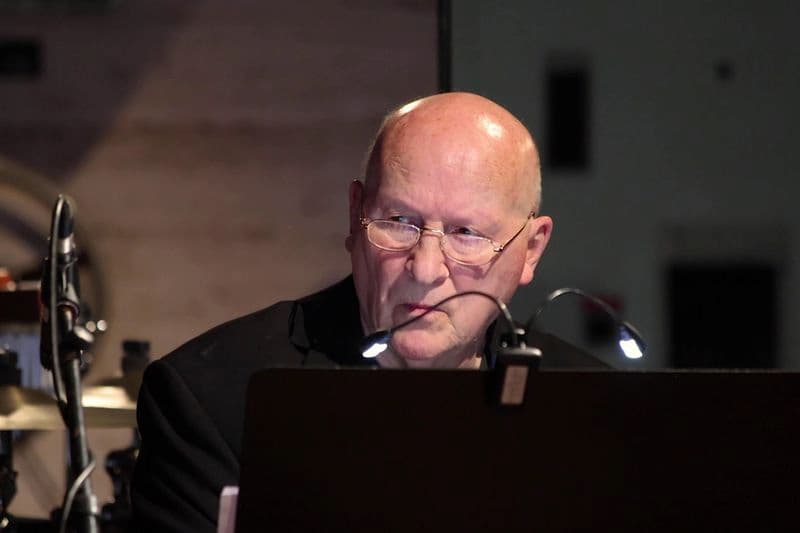
Gavin Bryars
Also on the programme is Schubert’s Quartettsatz, D.703, and, continuing the examination of Schoenberg that started in Concert 2, Schoenberg’s String Quartet No. 2, Op. 10, performed with soprano Else Torp. This is Schoenberg in 1908, having just discovered his wife’s affair, and discovering, in his words, ‘a style quite different from everything I had written before’.
Franz Schubert: String Quartet No. 12 in C Minor, D. 703, “Quartettsatz” (Lindsay Quartet)
Arnold Schoenberg: String Quartet No. 2, Op. 10 – I. Allegro (Fred Sherry String Quartet)
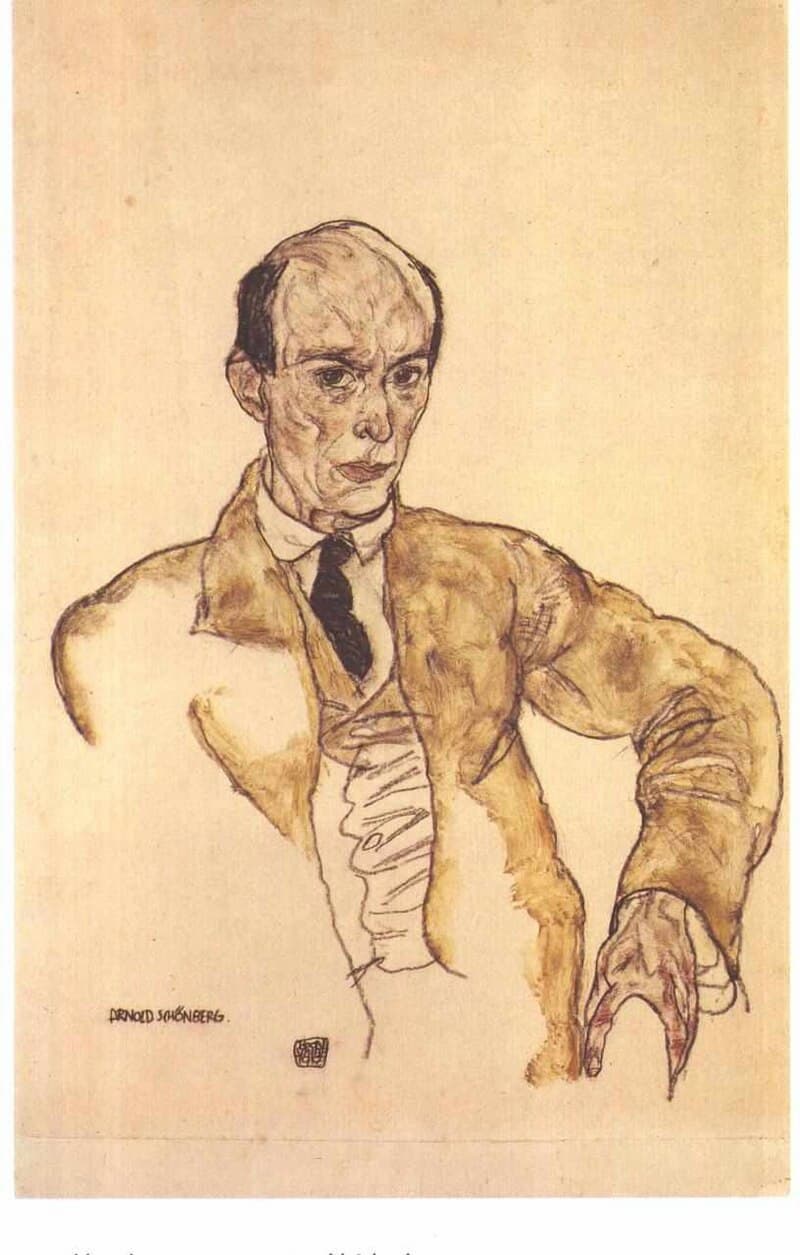
Egon Schiele: Arnold Schönberg, 1917
The festival closes with Concert 18, and Gershwin’s Rhapsody in Blue, performed by James Pearson, Artistic Director of the London jazz club Ronnie Scott’s.
In talking with Thomas Kemp, he emphasized how important it was for him that this was a local festival but that he was doing it to the best of his abilities, bringing in the leading performers of the day, challenging composers for their best work, and linking the programming to the place and the occasion. For example, programming Schoenberg’s cry against tyranny from 1942 (Ode to Napoleon) has more than a little resonance in today’s political world.
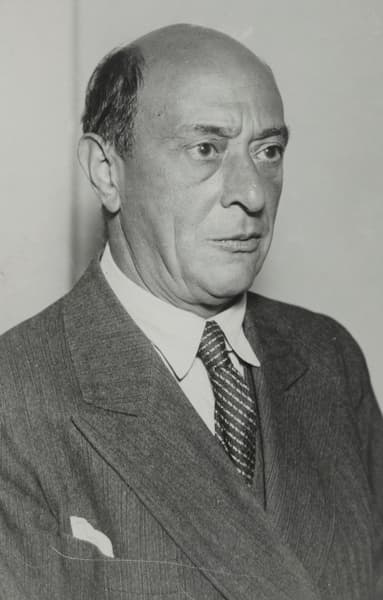
Max Fenichel: Arnold Schoenberg, ca. 1930 (Austrian National Library)
West Malling as a place of historic interest is underlined by the concert settings: concerts are in historic buildings, including Malling Abbey, St. Mary’s Church, All Saints’ Church in Tudeley (with its 12 Marc Chagall windows), and the local manor of Ightham Mote where there is not only the art exhibition of Ana Marie Pacheco but also a performance of Schubert’s Die schöne Müllerin on an 1830 Stodart piano once owned by Mendelssohn.
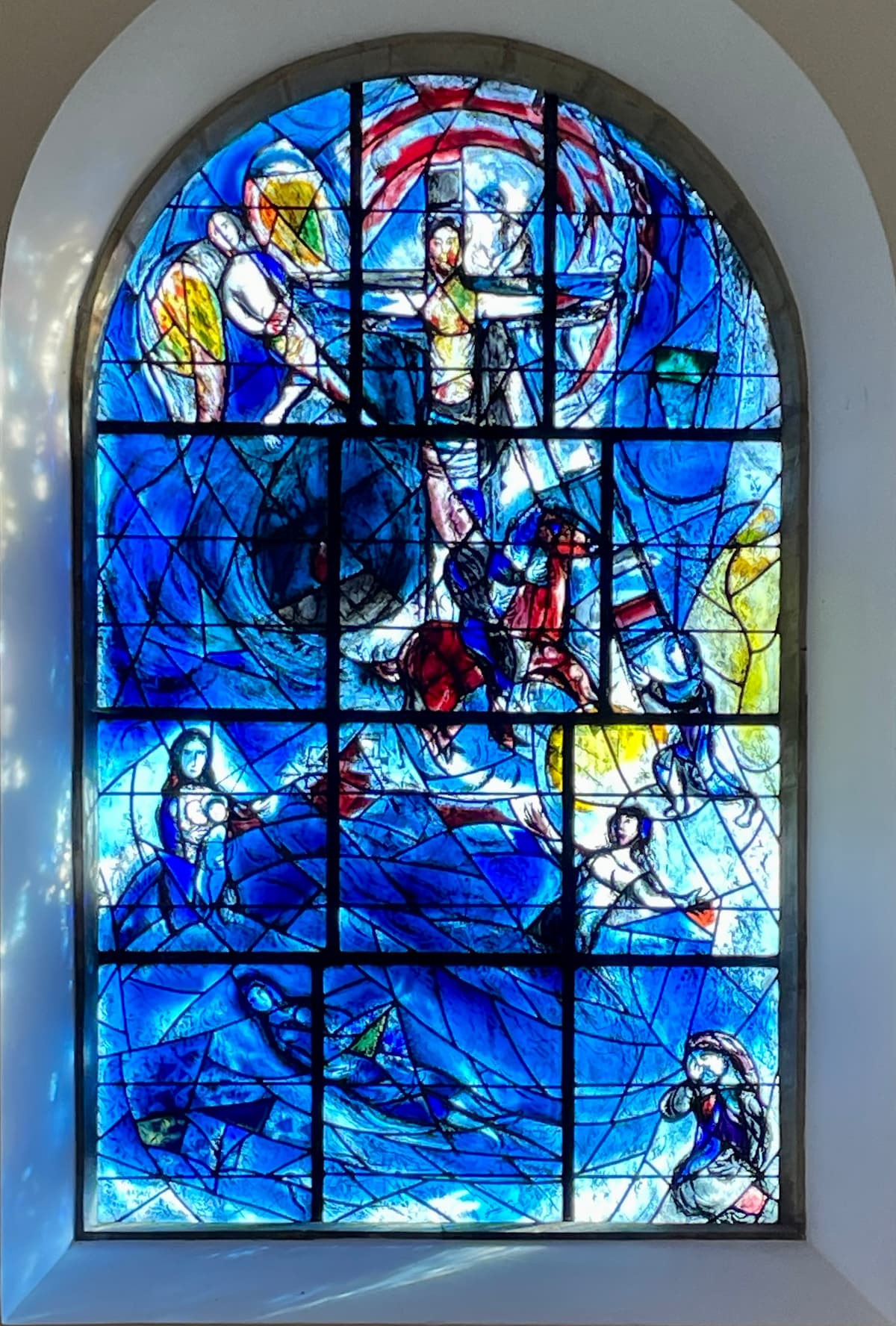
Marc Chagall: All Saints’ Church, Tudeley. The east window (window 8), 1967 (photo by Philip French)
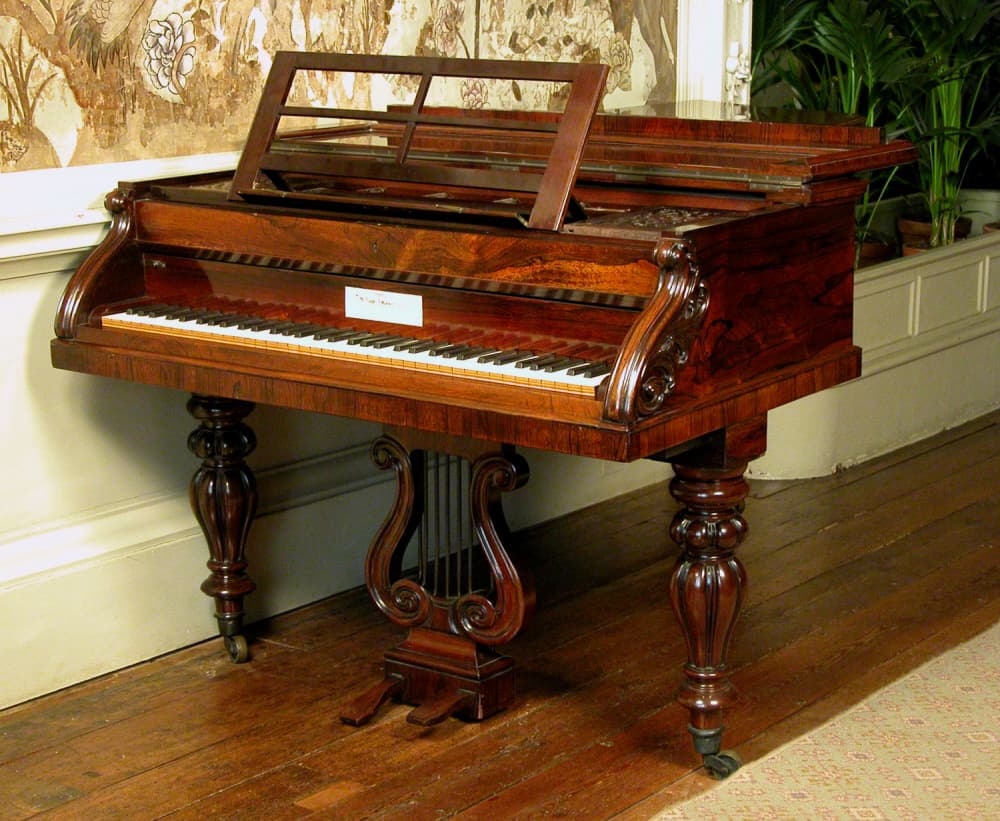
Stodart piano, ca 1930 (Ightham Mote, National Trust) (photo by Charles Thomas)
Curator of the house, Amanda-Jane Doran, will discuss the connection between the manor house and Schubert’s poet Wilhelm Müller.
Kemp’s connection with West Malling isn’t only confined to this festival but he’s active through the Festival’s many outreach programs, bringing music and the festival into the local schools to make connections with the upcoming generations.
Kemp wants to give his audiences things to make them think. People need to be freed to take up their creative lives and he wants to provide the connections that make things familiar. He spoke about his constant battle for modern music and people’s perceptions of a composer such as Schoenberg. ‘Too modern’, they cry, while Kemp points out that he was born 150 years ago and wants us to rethink our reactions.
Local is important. Context is important. Performances include pre-concert talks that help the audience put what they’re going to hear into context. We’re not used to thinking of Schoenberg as a product of the late Romantic period but his connections to the music of Brahms and Wagner have to inform our thoughts about his early works.
We asked what was next on his performance horizon and he was just off to conduct a performance of Pierrot Lunaire in Birmingham with the Birmingham Contemporary Music Group on Sunday, 15 September, in honour of the 150th anniversary of Schoenberg’s birth (13 September 1874). Then Music@Malling starts.

Music@Malling
Music@Mailling
20 through 28 September 2024
Tickets from £15 to £30
Information: https://musicatmalling.com/
For more of the best in classical music, sign up for our E-Newsletter




